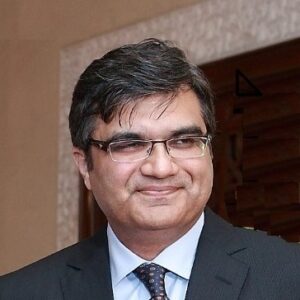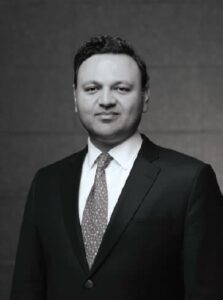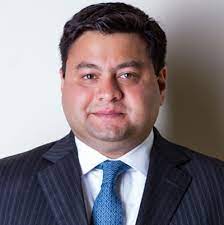What are your options if you want to start a business? You could either start your own company or buy an existing one. And no, you do not always have to resort to the stock market to buy a company or a part of it. In fact, a less explored option in Pakistan is equity investment in well-established but privately held businesses that have the potential to be more than they are now.
Similarly, if you’re an existing business owner aiming to raise capital to try a new risky idea, you could get a bank loan, but that would require you to come up with an acceptable collateral and with it the constant worry about repayments and losing the collateral just in case the bet doesn’t pay-off. You could go public but your business might not be big enough and since you do not account for all your revenue, your books are a mess. On paper your case is right up private equity’s alley. And you are not alone. Considering the low number of businesses that avail bank loans or are publicly listed, the private equity space must then be booming in Pakistan? Well, not even close.
Private equity in Pakistan is either shied away from or not widely available to small and medium sized enterprises (SMEs) that need it the most. And with banks not providing loans as they should, more private equity investment is the need of the hour. And it is also possible.
Recently the Pakistan Aluminum Beverages Company went public. You must be thinking so what? Well the interesting part about this IPO was the fact that it marked an exit for Ashmore, a FTSE 250 British investment manager dedicated to the emerging markets. This exit was well within the investment horizon planned out by the group and also proves to be a case study into how Private equity in Pakistan can work, and exits can happen successfully.
To understand what private equity is, we spoke to different players that either have taken or provide private equity. But before we get to those directly involved, Profit explains what private equity is, how you can apply for it, and why you should consider it.
What is private equity
In very simple words, the way it works is that different people go to an investment management firm or a private equity company and give them money to invest. The company then forms a fund. Private equity transactions are carried out in the form of acquisitions, funding to support operational growth or expansion. Now, when a company that doesn’t want to take a loan from the bank or go to the stock market (yet) wants to expand, they come to this investment firm and they use the fund to provide the company with money. In exchange for this money the firm gives them some stake, allow a new member on their board, and jaraha voice to shed guidance and experience, but for the large part, the private equity investors are patient partners. They wait for an agreed amount of time and then exit, hopefully with profits.
The private equity firms themselves charge money for management in addition to performance fees from investors in a fund. The valuations, however, are mutually decided instead of in an open market. Despite that, for a company, private equity investment is relatively easier for them to deal with considering limited stress of quarterly performance by investors.

Private equity investors are often considered patient when it comes to their investment and the returns they anticipate. They need to dedicate substantial investment for an extended period of time. Usually investors withstand long holding periods for a greater turnaround period which culminates in the form of the sale of the business or an IPO, marking an exit. The investment horizon is usually 5-7 years.
Treading history
Institutionalised private equity started taking off in 1995 in Pakistan when the Securities and Exchange Commission of Pakistan (SECP) introduced a regulatory framework that enabled setting up fund management companies in Pakistan. Pakistan is late in almost everything. And it was late in private equity fund management as well.
The concept of private equity and fund management predates Pakistan itself and while there is no concrete timeline to trace the genesis of private equity, historical records suggest that initial private equity transactions can be traced back to the industrial revolution in the 1850’s when prominent merchants financed industrial establishments in the West. It was only later on, after almost half a century, that the first notable instance of private equity transaction that can be classified as the transaction closest to a modern day buyout was JP Morgan’s acquisition of Carnegie Steel for $480 million in the US in 1901.
In 1946, however, the first two venture capital firms came into being, the American Research and Development Corporation (ARDC), founded by Georges Doriot who is considered the father of venture capitalism with two other partners, and J. H. Whitney & Company founded by John Hay Whitney and Benno Schmidt.
It is also important to note that Doriot was a former dean at Harvard Business School and one of his partners Karl Compton was the former president of MIT. The ARDC worked with the goal to encourage investment in businesses that were run by World War II soldiers upon their return.
The ARDC has an important place in the history of private equity considering the fact that it was the first of its kind, an institutional private equity investment firm that was not restricted to capital from wealthy families.
PE localized: Family Offices
Now that we have a preliminary understanding of what private equity is and how it began, the question we are now heading to answer is private equity in Pakistan.
One could say that private equity formally entered Pakistan significantly late, in 1995, Since then three revisions have been made in 2001, 2008, and then finalized in 2015. However, given the changes in the industry dynamics and Pakistan’s formalization of industry, investment and businesses, another revision in the framework will not be a surprise. Despite interest in trying their own hand at private equity, very few actually dived in such as JS, Ijara, Baltoro, and Abraaj.
JS was the first to set up shop, however it is pertinent to note that JS did this through a fund registered offshore to mitigate their risks. Abraaj was another entrant that had invested in BMA and later on in big names such as BYCO and then known as KESC. The two, however, found it difficult to successfully deploy their capital in Pakistan given the business environment, the lackluster opportunities, and the regulatory issues.
USAID, then came up in the early 2010s with the Private Public Investment Initiative that injected a $24 million commitment into Abraj, JS, and Baltoro in order to get private equity going in Pakistan. Again, due to the lack of a regulatory framework, all three were registered offshore.
The short answer, nothing worthy of calling an achievement. Abraaj froze its fund and returned capital that was not invested back to the investors. In simple terms, JS did nothing. It didn’t even manage to make its first investment. As far as Baltoro is concerned, they managed to make two investments, namely in AGP Pakistan that listed, and in Jhimpir, a wind power company.
A more recent wave of private equity is made up of new faces that includes Lakson investment private equity, PNO Capital, and Ijara. Karandaaz, Ithica Capital, Cyan Capital, etc are some other names. However, the family offices for major groups like Arif Habib, JS, House of Habib, and Atlas do engage in private equity in their own way.
There are and have been private equity funds in a formal structure such as Abraaj, JS, and Ijara. However, another type that has been undertaken in Pakistan includes groups that are buying companies or expanding. In Pakistan’s case, formal funds haven’t done too well. Private Equity on a group or family level that are making strategic or non-strategic investments are performing better. A possible reason is that there are a limited number of funds. There needs to be the right kind of managers to set up a fund however it is hard to find professionals with private equity experience in Pakistan. As far as family groups are concerned, they’ve realized the importance of inhouse teams for proper investment. Groups have their own teams and are less reliant on sell side analysts.
When it comes to private equity in Pakistan, family offices have generally done better than private equity funds. But because of the dearth of high-growth businesses to invest in, lack of private equity funds that grow the market and regulatory bottlenecks, even family offices have stayed away from private equity investments, and rather chose to invest in public equity, that is investing in public companies that offer quicker returns.
For instance, Karachi-based Cyan Capital started off as a private equity fund but rather chose to divert money to public equity. For clarification, we’re using Cyan as an example considering the fact that it was set up by the Dawood Family, a family that takes business very seriously and strives for success.
Cyan however started off as a now defunct insurance company that provided insurance to Dawood Group Companies. Through their business of insurance they were able to generate a significant pool of reserves, approximately Rs 2 billion in 2011. That is when they thought they could put this money to better use, and left the business of insurance by revoking their license.
They then set up Cyan Capital under the management of Samad Dawood. Dawood got Suleman Mehdi involved as well, in addition to Asfundyar Shaheen. None of these three had any idea how Private equity is undertaken in Pakistan, in fact none had any experience in private equity. That is when they brought in Shehryar Ahmed, a former Goldman Sachs employee to create a business model for them.
The business model was simple: take a significant minority stake in high growth businesses worth 5-10 million dollars per investment. While they were looking for places to invest and checking feasibility, they invested in Dawood Group Companies on the stock market. Later on they moved beyond the Dawood Group. A lot of companies, however, were evaluated and none were followed through. That is when Cyan Capital, a firm that was set out to be a private equity firm turned into Cyan Limited, a public equity firm.
The failure of Cyan Capital to undertake private equity investment bottles down to a few reasons, there had become a conflict of interest with regards to how the money was to be invested. With two teams, private and public equity, competing for the same capital, public equity won primarily because of the quicker returns.
Similarly, if we take the group aspect in mind and the fact that this was a few years ago, one could also assume that the framework for private equity and minority investment was something the Dawood group was not too comfortable with. On the flipside, one could argue, Cyan with a $50 million fund was insignificant for the Dawood Corporation. Moreover, after Cyan started off, Samad Dawood found himself elevated in the group and thus may have had less time to give to Cyan. Something similar can be said for JS where the PE fund they had set up was too small to be a concern for them in the grand scale of things for the group.
Why is PE important?
Public markets are not an accurate representation of the economy as a whole. With only 576 listed companies out of approximately 60,000 registered with the SECP; a market cap to GDP of around 35% and a significant portion of that dominated by banks and Oil & Gas. On the demand side, access to capital for private enterprises is also limited, mainly due to conservative lending practices by banks and crowding out from the public sector.
The banking sector in Pakistan is not a big lender to smaller businesses or nonpublic entities. Banks require collateral while that is not the case around the world. Companies like Apple and Google are able to borrow money for which they have zero assets to secure based on their cash flow. Cash flow lending is not prevalent here because of the lack of sanctity of contracts. In fact, it all comes down to the enforceability and sanctity of the contract. But this is not a story on how the banking sector needs to do more.
The SME sector in Pakistan needs a push. This sector is important because it is accessible and has potential to grow at larger multiples. However, raising money in Pakistan often remains a struggle. Banks generally have a low risk appetite and would rather invest in government paper. When they do lend to the private sector it is usually to big names, blue chip companies in other words. SMEs are not able to get the same access to finance.
Private equity gives them not only the opportunity to receive investment that can help drive their business but also gives them the perspective of an outsider that can advise on business matters. Usually a private equity investment results in someone from the fund, or in Pakistan’s case, a family office a seat on the board. Very often, individuals that are given a seat have business acumen that can help the company that has received investment.
It may not be feasible for a number of SMEs to have specialized analysts and advisors, this however gives them access to it alongside patient investment that does not have to be repaid. While funds may be the way to go for other countries, Pakistan has found its own way at carrying out private equity transactions. This localized solution is not something that one needs to be weary of as long as the family offices do not turn predatory.
The players
When we started this story, we began with the Pakistan Aluminum Beverage Can Company Ltd. The reason that instance was such a fascinating case study was that it was one of the few examples of a truly successful and well executed private equity story in Pakistan. To try and understand better how the process works, we sat down with Babar Lakhani from Lason Investments, Naveed Goraya from Karandaz, Ali Saigol from Baltoro, Haider Ali from Ithaca, and Farukh Ansari from Ijrah Capital – all of the major private equity firms in Pakistan – and asked them the same questions. These are their responses:

Babar Lakhani
CEO Lakson Investments
- How would you describe the private equity space in Pakistan?
Private Equity in Pakistan is at a nascent stage. Historically, we have had some offshore PE funds make investments in Pakistan, however the asset class was not open to Pakistani investors.
In 2016, the SECP introduced the “Private Equity and Venture Capital 2015” regulations which created two new asset classes for domestic investors. Under the new regs several firms have received licenses which today manage funds.
- How many PE investments have you made in Pakistan? Can you name them?
We have made two investments in the Lakson Private Equity Fund. Our fund is healthcare focused and the first acquisition was OMI Hospital in 2018, and the second was Shan Hospital in 2020.
- How many successful exits have you made? What do you think is a successful exit?
As a team we have been involved in several large exits. A successful exit for us is delivering the anticipated returns to the investors, and ensuring local investors are comfortable reinvesting in the private equity asset class.
- Why do you think structured PE hasn’t been able to flourish in Pakistan?
As with any new asset class, it takes some time before investors become comfortable with them. PE investments are long-term, usually 7 to 10 years, which makes them more suitable to institutional investors.
- What exit options does a PE fund have, other than an IPO?
To us, a ‘true’ exit is one of a trade sale where all investors can entirely be cashed out. Besides a market listing or a trade sale, there are opportunities for a secondary buyout or leveraged recap. Funds may also use a dual track process for an exit, filing an IPO prospectus and pursuing a trade sale at the same time.
- What is the size of your fund?
Approximately $20 million

Navid Goraya
Chief Investment Officer at Karandaz
- How would you describe the private equity space in Pakistan?
Private equity space is relatively new in Pakistan. The industry is yet to make any significant progress despite the fact that the regulatory framework for private equity and venture capital has been in existence for some time. The previous regulatory regimes did not garner a lot of interest, however, with the introduction of new private equity and venture capital regulations in 2015 a number of new players have emerged in the private equity landscape.
- How many PE investments have you made in Pakistan? Can you name them?
Karandaaz Pakistan has made a number of private equity investments in a diverse range of sectors and we continue to look at various private equity opportunities. KRNs core objectives are to deliver business and economic growth, generate higher and sustainable incomes, and increase employment and trade opportunities. The list is as follows:
HAC Agri Ltd: A Controlled Atmospheric (CA) storage facility for fruits and vegetables. It is the first of its kind project in Pakistan to ensure the availability of the fruits & vegetables in off-season with the same freshness and quality as in season. Techlogix Pakistan Ltd: A leading IT services and enterprise solutions company with operations based out of Pakistan. Excel Labs Ltd: Excel Labs, one of the largest laboratory and diagnostic services providers in Pakistan, has presences at more than 100 locations across Punjab, KPK, AJK and Sindh. Wahdat Poultry Farms Ltd: A pioneer in introducing Pakistan to branded healthy eggs through modern layer farming. NRSP APC Ltd: Established as a subsidiary of NRSP to provide warehousing, processing and income enhancement facilities to small rice farmers. Secure Logistics Group Ltd: The company provides a unique combination of long-haul and short-haul logistics, tracking, and security services to clients across Pakistan.
- How many successful exits have you made? What do you think is a successful exit?
Private Equity by nature is patient capital with a typical investment horizon of 5 – 7 years. Karandaaz growth capital to SMEs with commercial and development objectives in line with the mandate. The vintage of Karandaaz portfolio is relatively new, hence, we have not exited any investment at this stage. We would measure the success of an exit with the achievement of development objectives and achieving financial returns.
- Why do you think structured PE hasn’t been able to flourish in Pakistan?
Some of the key reasons for slow growth of PE space in Pakistan are the constant changes in the regulatory regime. There are hurdles in movement of capital, limited options for exit, a very vast undocumented sector, the constantly changing economic environemnt, and limited market and sector data, as well as research houses.
- What exit options does a PE fund have, other than an IPO?
A PE fund can go directions other than an IPO. There can be an acquisition by a strategic buyer. Secondary sale is an option in which the private equity firm will sell its stake to another private equity firm. There could be a management Buyout in which the management group does a takeover by using significant amounts of leverage to finance the acquisition of the company. There could also be a repurchase by the majority shareholder, in which the majority owners purchase the stake from the private equity investors.

Ali Saigol
CEO of Baltoro
- How would you describe the private equity space in Pakistan?
A number of PE-like transactions do take place through M&A, family offices or through private consortiums. However, a smaller number of transactions have been done through formal PE structures. There have been several false starts to formal PE Funds in Pakistan. There was an initial wave of PE in 2007, which was triggered by JS. Then a second wave of formal funds came about in 2015 which included funds by Abraaj, JS and Baltoro. These were the funds that had international institutional investor backing and were set up under funds best practices of corporate governance. On the heels of this activity, a lot of local PE activity also started coming about which can be termed as being more opportunistic and on a deal-by-deal basis as opposed to under formal Fund structures. In addition, on the periphery, some market brokers also tried to capitalize on this activity and ended up encapsulating their brokerage activities as fund investments. We do believe there is a lot of liquidity floating around in the local market which is currently deployed in low yielding asset classes. This indicates that there is a strong case to be made for an experienced Fund Manager with a track record to ‘pull’ some of this capital towards a fund structure and help the PE space to grow.
- How many PE investments have you made in Pakistan? Can you name them?
We as a team have made roughly 10 investments. However, we’ve made three disclosed investments directly through Baltoro’s Growth Fund. Namely AGP (pharmaceutical), Triconboston (renewable energy), and NBP funds (financial services).
- How many successful exits have you made? What do you think is a successful exit?
A successful exit is anything that provides underlying investors a good return on their investment. We invested in AGP in 2016 and the company went public in 2018, hence providing us with a good mark-to-market based on the publicly traded share price. An IPO can be considered as a step towards an exit, as an eventual sale from here onwards (whenever that is) is straightforward to execute at our discretion.
- Why do you think structured PE hasn’t been able to flourish in Pakistan?
There is no question in our minds that the PE market will take off in Pakistan. It is just a matter of time. You can see the entire ecosystem coming together. There is a lot of liquidity in the local market as well as in the international investor arena who are willing to look into investments in Pakistan. You have a lot of investable assets in Pakistan that are ripe for transactions, and you have a lot of talented managers who are building successful track records in Pakistan capable of becoming recipients of this available capital to deploy. In addition, you have a conducive regulatory environment that is receptive and willing to work with investors and managers to address any concerns in order to facilitate new investment into Pakistan. Once you have enough data points, you will have validation in the market.
- What exit options does a PE fund have, other than an IPO?
The main goal of any exit is to ensure that you are able to maximize your investment proceeds for your investors. Trade sales, sale to local and international investors, yield seekers, and IPOs are ways to exit. If markets are efficient, and your asset story can be reasonably understood, then an IPO can be a good route to maximizing your investment. Sometimes strategic buyers can also be out there who may be able to price in some synergies and give you a higher valuation than you may be able to secure in an IPO market. Sale to other sponsors in the industry is also an option. The broadening of the public markets is exactly what happened in other emerging markets 10 -15 years ago. This is a good sign and offering IPOs as a viable option. When AGP went Public in 2015, only 2-3 IPOs that year. The number of IPOs we’re seeing now is promising.

Haider Ali Hilaly
CEO Ithaca
- How would you describe the private equity space in Pakistan?
Thus far private equity funds in Pakistan have, for the most part, tried to take minority stakes in private companies because: 1) they don’t have the capacity to take control of a portfolio of 8-10 businesses; 2) the HR to operate businesses isn’t readily available in the market so generally one has to rely on the founder/sponsor to run operations. 3) The founder/sponsor is usually not in favor of selling a majority / controlling interest to a financial investor (who may or may not know anything about running their business).
We now take controlling stakes because of our experiences. Generally private equity, as an asset class in frontier markets, is a passive financial investment where the investor takes minority stakes. However, we have the benefit of having operating companies which have given us operational insight and management bandwidth, which enable us to manage controlling stakes.
- How many PE investments have you made in Pakistan? Can you name them?
We have 12 portfolio companies in Pakistan out of which all but one are privately held. Daewoo Express, Habibullah Coastal Power Company, Bykea, Kidco, Hetz, Mustang Security, Calcorp, Athena Brands, Mustang HRMS, Partners, and Mustang Eye.
- How many successful exits have you made? What do you think is a successful exit?
Divestments have been made in Cinepax, Hawa Energy, Red Top Cab, Business Day, Rocket Rickshaw, Optimus Tech
- Why do you think structured PE hasn’t been able to flourish in Pakistan?
Formal private equity funds generally have an investor base of institutional investors including Development Finance Institutions. This investor base is particularly concerned with good corporate governance and full compliance with all applicable laws (including best practices in ESG). It is therefore incumbent on the Fund manager to ensure that any investment made by the Fund accurately reflects the values by which the Fund’s investors would like to deploy their capital. As such, formal PE investors are required to diligence many different aspects of a potential investment which can often be an onerous and expensive process. Whereas for a family conglomerate, it’s actually the family’s money and they can decide to invest it with a level of due diligence that is satisfactory to them.
When you have an institutional third-party capital provider that has compliance and disclosure requirements, there needs to be a level of transparency both in the current operations and future operations and in the accounting records. Unfortunately, we operate in a country where the environment around private businesses, generally speaking, lacks transparency. There are several questions that arise: is the company compliant with tax laws, are the profits fully accounted for and transparent to all regulators? PE funds and their investments need to be able to check all of these boxes.
There is hardly any formal private equity in Pakistan. The committed capital to the private equity asset class is not more than $100 million if I’m being very generous. However, we do have private equity activity in the country and most of this activity is being conducted by the large families, who have accumulated large cash balances from their existing rent-seeking business and are now looking to redeploy this capital into attractive opportunities (that are limited in the public markets or even within their existing businesses). Even within this space, if I take out VC, and we talk about early to late stage M&A activity, you will seldom find a family conglomerate taking a minority position. This works for the families because they like control and because they have a pool of HR, from existing businesses, that can be redeployed in the newly acquired companies.
- What exit options does a PE fund have, other than an IPO?
Strategic sale is usually a good option, but it is normally only possible if you own majority or have a path to control, ii) sale back to the sponsor but that doesn’t really work and creates a disconnect in incentives (i.e. you want max price and sponsor wants min price).

Farrukh Ansari
Founder and CEO of Ijara Capital
- How would you describe the private equity space in Pakistan?
Private Equity is a nascent industry in Pakistan with the majority of the funds being incorporated after 2017. The Private Equity sector in Pakistan has huge potential to grow if supported by the government in terms of corporate and taxation reforms.
- How many PE investments have you made in Pakistan? Can you name them?
We currently manage Pakistan Emerging Market Fund – I (“PEMF-I”), with a size of PKR 10 bn which was partly invested to acquire 100% shareholding of Quick Food Industries (Private) Limited (“QFIL”), one of the pioneers and leaders in frozen food in Pakistan. It currently markets its products under the brand name “MonSalwa”. We are underway in pursuing investments in Pharmaceuticals, Logistics & Warehousing, and Technology sector, and other investments are under the process of due diligence. IJARA Group has a long history of acquisitions and managing investments, going back to even before the development of the current Private Equity ecosystem.
- How many successful exits have you made? What do you think is a successful exit?
Our current vintage of the fund has not yet reached its maturity date. We aim to exit from our fund investments by the year 2023 – 2024.
- Why do you think structured PE hasn’t been able to flourish in Pakistan?
We think it comes down to a couple of reasons: Investor Pool: The majority of the Investors in Pakistan who are willing to invest in Private Equity are usually large business houses as compared to Pension Funds and Insurance Companies in developed countries because of which a limited pool of investment is available. There have been a lot of uncertainties regarding the taxation of Private Equity Funds and Private Investors. Recently the Government has withdrawn tax provisions that were vital for Private Equity Funds and their investors. The existing taxation regime lacks any tax incentives for investors of Private Equity Funds. The foreign exchange regime is complex in Pakistan which creates hurdles in executing foreign investments by a Private Equity Fund. Also, difficulties in the repatriation of proceeds make it difficult for investors to invest from abroad in Private Equity Funds.
- What exit options does a PE fund have, other than an IPO?
IPO is considered to be the best option for exits, only if the environment allows us. Whereas, Targeted Sale, Secondary Sale, and Strategic Sale are also good options, as historically industries in Pakistan have witnessed a good return on strategic sale and a fair augmentation in the overall valuation of the asset. Special-Purpose Acquisition Company (“SPAC”) is also scaling attention and could be used as a potential option. The law for which is currently in its draft form.
- What is the size of your fund?
We have the aforementioned PEMF-I fund currently active and another fund on the way. The second fund was due to be launched in 2020 but was delayed due to the uncertain situation of COVID-19. We are currently shortlisting investing opportunities in Healthcare, Warehousing & Logistics, and Technology for the upcoming fund.


























SME’s want ownership to remain with them. PE wants a significant and controlling stake in the business against their investment. The two wants/desires are at odds with each other.